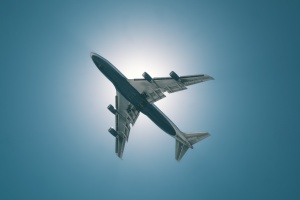Back to travelling: what you should know when your flight is cancelled or delayed

It’s safe to say that the last couple of years weren’t the best for travelling. With the pandemic keeping us closer to home, there weren’t many opportunities to escape and explore new destinations. This is all set to change in 2022 as travel restrictions are easing down and countries are opening up their borders again. However, before we get too excited and start packing our bags, there are still a few things to consider: firstly, with flights beginning to resume it is likely that more cancellations and delays will occur due to security reasons. Secondly, even though airlines are obliged by law to compensate you for any disruption, in practice this doesn’t always happen. Let’s discuss what to do in case of flight disruptions and how to find out if you’re eligible for compensation.
Know what your rights are
First of all, it’s important to keep in mind your rights as a passenger when something doesn’t go according to the planned itinerary. The EU regulation 261/2004 protects the rights you have when using the airline’s services. Here are some primary things to consider:
- If your flight is cancelled, airlines may offer you the choice between a refund or an alternative flight. If you do not understand the language in which this information is provided to you, ask for help from a member of the cabin crew or airport staff who can translate it for you.
- Your airline should provide a care package if your delay is more than 2 hours. This can include bottled water, food, phone calls and access to public telephones or private rooms (if necessary).
- In case of long delays airlines should provide passengers with up-to-date information on their situation or contact them regularly regarding alternative transportation options available to them at no extra cost.
When you are eligible to make a claim
The regulation’s approach to compensation is based on the length of your delay and the travel distance. It’s important to note that not all flights are covered by this regulation, so make sure that your flight meets its conditions before you start making any claims. First of all, your flight usually has to be delayed by at least 3 hours for you to be able to make a claim. There might be exceptions when the delay is very close to this amount, but each case has to be analysed individually. A similar rule applies for cancellations - if you were notified 14 days or less prior to your scheduled departure, you are eligible to submit a claim. Lastly, the cause for the delay or cancellation is key and it will determine whether you receive any compensation or not.
What causes for disruptions are within the airline’s control and which aren’t:
Usually the airline is not responsible for a delay or cancellation if the circumstances that caused them are considered extraordinary under the EU regulation. They are:
- Safety or security reasons.
- Bad weather conditions.
- Political unrest.
- Terrorism.
- Air traffic control issues.
At the same time if the reasons for your flight disruptions are related to the airline’s internal issues such as inconsistencies in the schedule, the crew’s strike, operational issues or technical problems, the airline is obliged to compensate you for the inconvenience caused.
Sometimes it’s really tricky to identify what the real underlying issue was, which is why many customers are left without compensation. An important part of this process remains the impact of COVID-19, which is considered an extraordinary circumstance under which the passenger is only entitled to a ticket refund. But even problems related to the pandemic rules and guidelines can be mirky, and sometimes the help of experienced professionals is needed to determine your eligibility.
Some tips on what to do if you’re experiencing a flight disruption
Having your flight delayed can be a very nerve-racking experience to go through, especially when you’ve made holiday plans weeks prior to your scheduled flight. However, it’s best not to panic and to try to focus on what’s happening around you. Make sure you keep all the details about your interaction with the airline - all email and SMS correspondence, pictures of your boarding passes and the reasons the airline gives you for delaying or cancelling your flight. Keep track of the time you spend waiting and try to determine whether other flights are being affected too. Finally, you might be better off not accepting any vouchers the airline offers you to make up for the discomfort caused - if you accept, you may no longer be eligible for monetary compensation.
Get excited about travelling this summer!
As travel restrictions begin to ease down across Europe and we slowly return to life before lockdown, it’s likely that many people will be taking advantage of long-awaited trips abroad this summer. And with so much uncertainty surrounding COVID-19, some travellers may be a bit hesitant about booking a new flight - which means it’s important for us all to know what our rights are when dealing with flight disruptions! We hope these tips will help anyone planning on flying this year to take charge and to ensure they’re supported throughout their journey.

